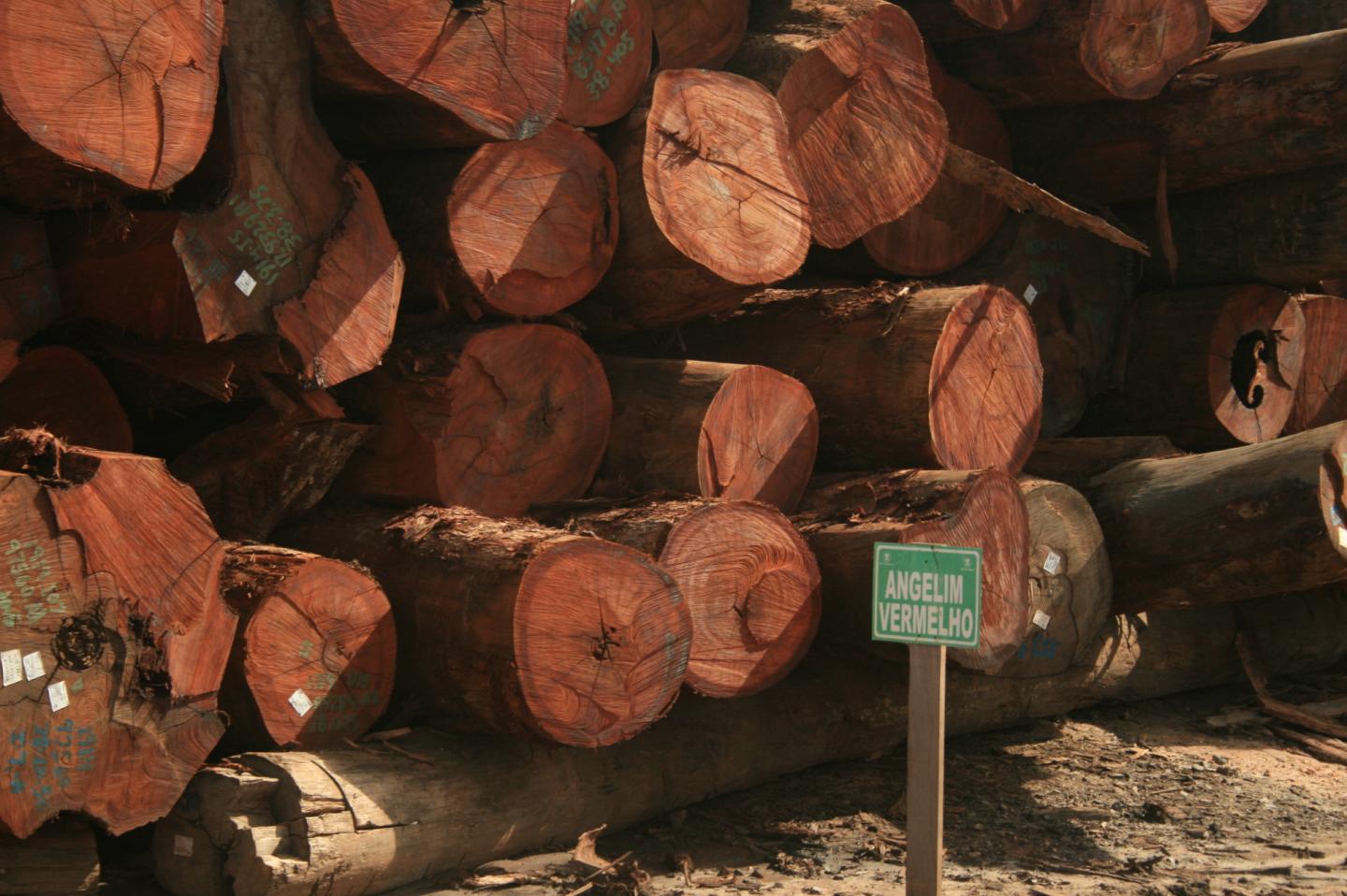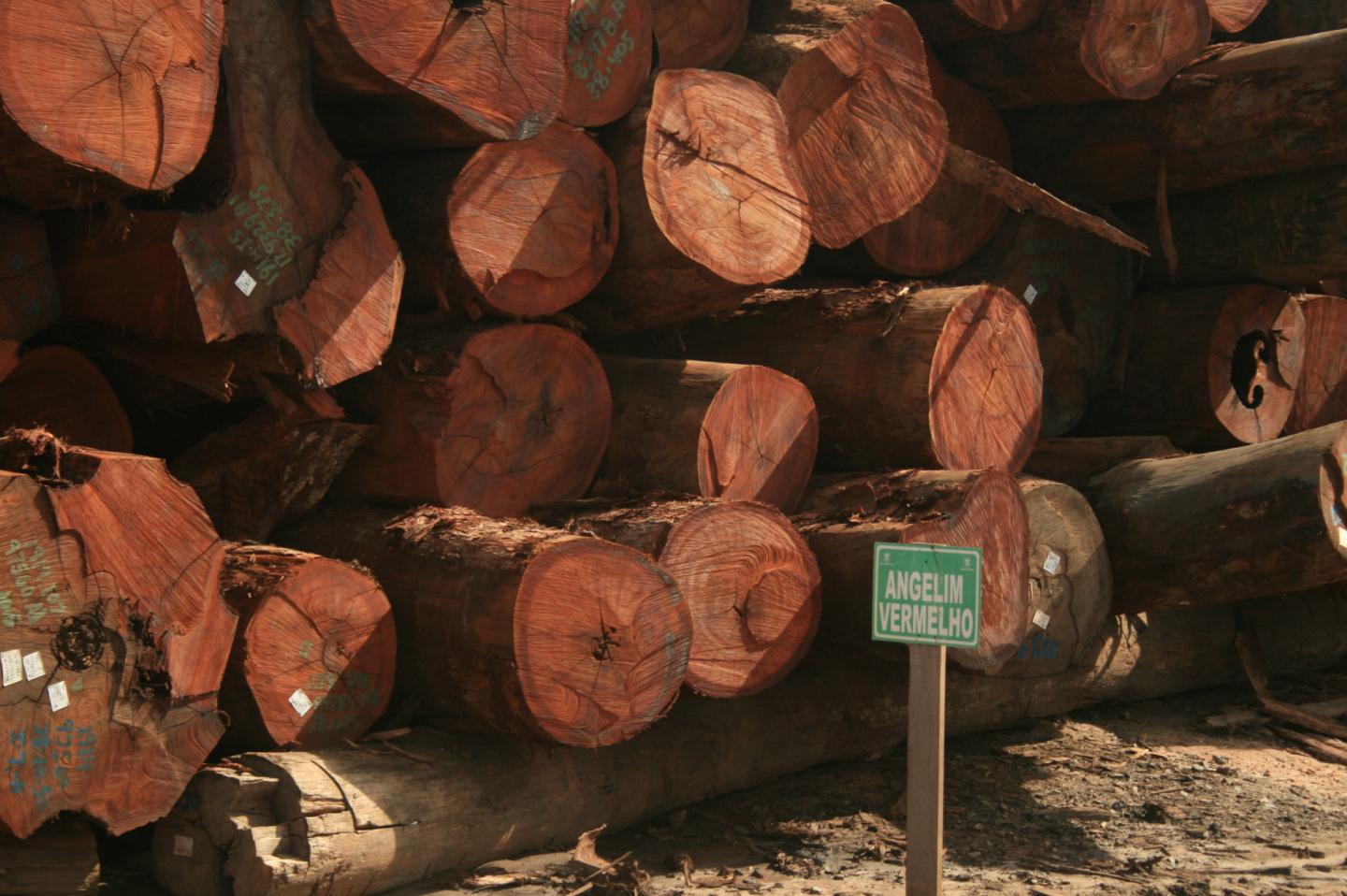
Credit: Felipe Franca
More than 403 million hectares of tropical forests worldwide have been earmarked for timber concessions with selective logging a common economic activity. The Brazilian Amazon alone holds around 4.5 billion m3 of commercial timber volume, and increased is the demand on Amazonian hardwood as African and Asian timber stocks are exhausted.
The international study, 'Identifying thresholds of logging intensity on dung beetle communities to improve the sustainable management of Amazonian tropical forests' looked at the impact of logging by examining its effect on forest dung beetles and the way in which the beetles remove dung and disturb the soil, considered as good indicators of forest and soil health.
The research, published in the scientific journal Biological Conservation, looked at 34 different plots situated in the state of Pará – an area two times that of Spain and a focal point for Amazon protection efforts in the last decades. They found that even low levels of logging leaded to negative effects on dung beetle diversity and rates of dung beetle-mediated soil removal.
"Our findings provide novel empirical evidence that biological consequences from Reduced Impact Logging depend strongly on the scale and intensity at which logging operations are developed" said lead researcher Filipe França from Lancaster University. "The dung beetle species richness and biomass, and the soil removal rates were negatively affected by increasing the logging intensity."
For context, the activity of almost 5,000 dung beetles from 53 species was recorded within the largest logging concession in the Brazilian Amazon, covering 544,000 hectares of native forest – an area 3.5 times that of London. There was a rapid reduction in biodiversity up to a logging intensity of around 10 -20 m3 of timber removal per hectare after which it flattened.
"Contrary to expectations, we found concave-shaped relationships between logging intensity and biodiversity and ecosystem functioning, demonstrating that sensitive dung beetle species and important processes may be lost following even low intensity anthropogenic forest disturbances", said co-author Professor Jos Barlow of Lancaster University.
"Taken together, these results suggest that production forests in the tropics need to reconsider the scale at which logging intensity is regulated, and put in place measures that further incentivise land sparing to enhance biodiversity conservation."
###
Media Contact
[email protected]
[email protected]
44-152-459-2612
http://www.lancs.ac.uk
Related Journal Article
http://dx.doi.org/10.1016/j.biocon.2017.10.014





